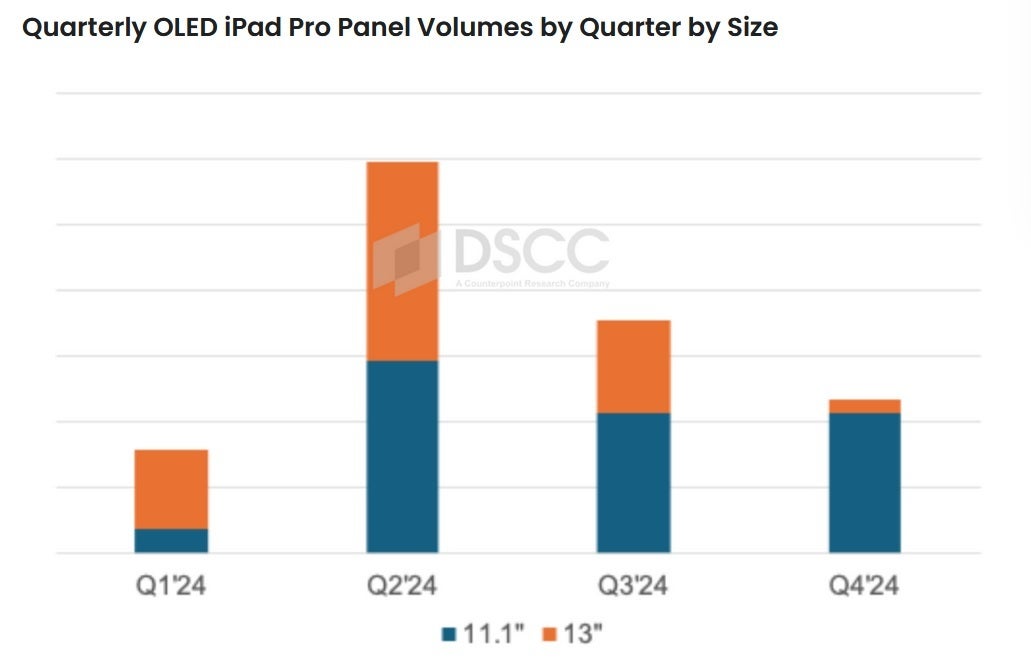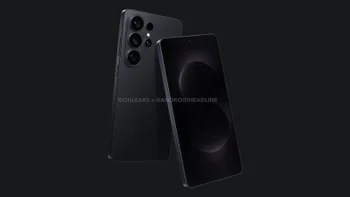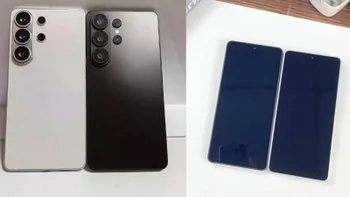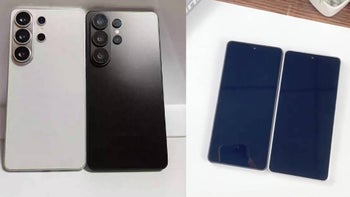Supply chain data indicates weak demand for both the 11-inch and 13-inch M4-powered iPad Pro models

A new report from Ross Young at DSCC says that demand for Apple's first iPad model to sport an OLED display, the M4-powered iPad Pro, has collapsed. After being released last May, the most powerful Apple tablet, available with an 11-inch and 13-inch display, had a strong start. Exceptionally thin at .2mm, Young says that the top-of-the-line Apple tablet iPad Pro are the thinnest tablets on the market. And you can't overlook the use of Apple's most powerful M-series chip to date, the M4.
The number of 11-inch and 13-inch panels shipped for the M4-powered iPad Pro is now expected to fall below expectations. Young is reducing his estimate of the panel shipments from 10 million units to 6.7 million which is a substantial 33% decline. Preliminary figures for Q3 show a 40% decline in shipments of both OLED panel sizes for the M4-powered iPad Pro. This drop will continue during Q4 with an expected 30% drop.
The larger 13-inch panels are seeing the biggest decline in deliveries with a 50% drop forecast for Q3 followed by a whopping 90% or more decline expected during Q4. Young says that after a large number of OLED panels were shipped during the second quarter of this year to satisfy demand for the 11-inch and 13-inch tablets from early adapters, purchases of the M4-powered iPad Pro have shriveled up.

The number of OLED panels shipped to Apple for M4-powered iPad Pro production has been declining sharply. | Image credit-DSCC
Young gives several reasons why there has been a drop off in demand for the tablets starting with their prices. With pricing at $999 and $1,299 for the 11-inch and 13-inch models respectively, he says that for a device that is traditionally complementary to a smartphone, the prices are high. Additionally, tablets have a long life on consumers' desks and aren't upgraded so often. The OLED panels and M4 chipset are not enough to get owners of older iPad Pro models to trade them in for the latest iteration of the device.
The report places the M4-powered iPad Pro tablets in the category of a product that is "nice to have" rather than being a necessity. As the report says, "The switch to M4 chips and OLEDs is likely not creating enough of a performance or experience difference to justify the large spend." And even more worrisome for Apple, Young raises the question of whether the weak demand for the ultra-thin iPad Pro tablets is a bad omen for the ultra-slim iPhone 17 Air model expected to be released next year.
The weaker demand could also lead Apple to delay equipping the iPad Air tablets with an OLED display. The move from that line's current LCD panels to OLED could be pushed back by a year or longer.
Follow us on Google News














Things that are NOT allowed:
To help keep our community safe and free from spam, we apply temporary limits to newly created accounts: